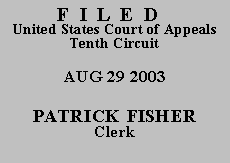

| UNITED STATES OF AMERICA,
v.
JESUS OSUNA-CERVANTES, a/k/a
Jesus Manual Rivera-Quinonez, a/k/a
Jesus Rivera-Quinonez |
|
In the motion to withdraw, counsel for Mr. Osuna-Cervantes states her belief that the appeal is frivolous, having reviewed the applicable law and the record. In Anders, the Supreme Court held that if appointed counsel "finds [her] case to be wholly frivolous, after a conscientious examination of it, [she] should so advise the court and request permission to withdraw." 386 U.S. at 744. Where counsel has filed an Anders brief, we must conduct a "full examination of all the proceedings" to determine if the appeal is "wholly frivolous." Id. If we concur in counsel's evaluation of the case, we may grant the request to withdraw and dismiss the appeal. Id.
After a thorough review of the record we conclude there are no meritorious issues for appeal. As to the conviction, we note at the outset that because a defendant who pleads guilty waives all non-jurisdictional challenges to his conviction, his "only avenue for challenging his conviction is to claim that he did not voluntarily or intelligently enter his plea." United States v. Wright, 43 F.3d 491, 494 (10th Cir. 1994) (citing Mabry v. Johnson, 467 U.S. 504, 508-09 (1984)). However, Mr. Osuna-Cervantes has not argued that his plea was involuntary or unknowing, and nothing in the record suggests that it was.
As to the sentence, the record reveals that the sentence imposed was within the applicable guideline range, that the guideline range was correctly determined, and that the district court did not exceed the statutory maximum sentence for the offense of conviction.
The argument that the district court should have sua sponte departed downward from the applicable guideline range based upon a discouraged factor, specifically recent employment history, U.S.S.G. § 5H1.5, is rejected. Given the discretionary nature of a decision not to depart (a decision that ordinarily cannot be appealed), there is no plain error in this situation. Moreover, Mr. Osuna-Cervantes' recent employment history would not constitute an exceptional circumstance that might furnish a basis for departure. See United States v. Jones, 158 F.3d 492, 498 (10th Cir. 1998).
The argument that the district court should have taken evidence after Mr. Osuna-Cervantes abandoned his objection to a criminal history point used to determine his sentence is also rejected. When confronted with fingerprint evidence concerning the underlying conviction, Mr. Osuna-Cervantes folded, and the district court could then rely upon the presentence report without the taking of evidence. See Fed. R. Crim. P. 32(i)(3)(A) (court "may accept any undisputed portion of the presentence report as a finding of fact").
Accordingly, we DISMISS the appeal and GRANT counsel's request to withdraw.
Entered for the Court
Paul J. Kelly, Jr.
Circuit Judge
*. This order and judgment is not binding precedent, except under the doctrines of law of the case, res judicata, and collateral estoppel. This court generally disfavors the citation of orders and judgments; nevertheless, an order and judgment may be cited under the terms and conditions of 10th Cir. R. 36.3.
2. After examining the briefs and the appellate record, this three-judge panel has determined unanimously that oral argument would not be of material assistance in the determination of this appeal. See Fed. R. App. P. 34(a); 10th Cir. R. 34.1(G). The cause is therefore ordered submitted without oral argument.